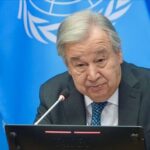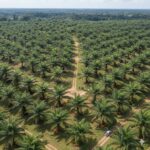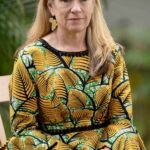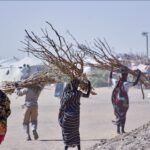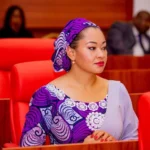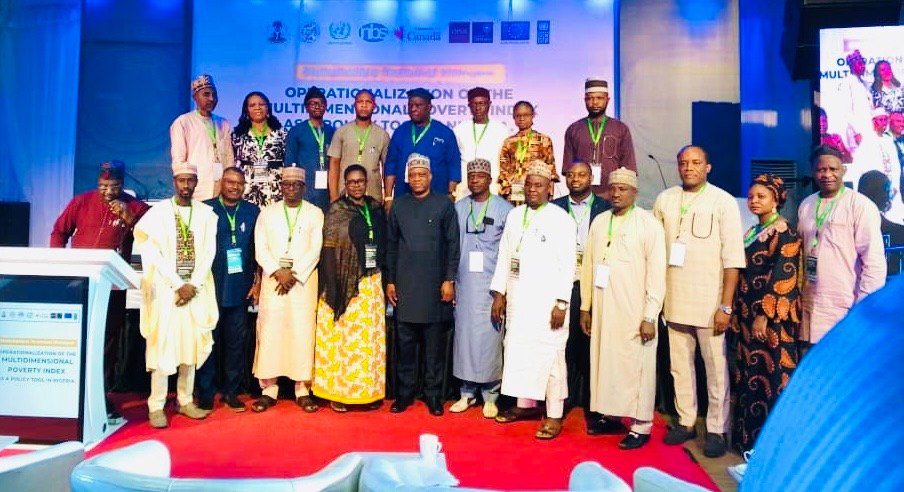By Okeoghene Akubuike
Mr Adeyemi Adeniran, the Statistician-General of the Federation has called on stakeholders to take action to eradicate poverty in Nigeria.
Adeniran, CEO, National Bureau of Statistics (NBS) said this at a Stakeholders Technical Dialogue on the “Operationalisation of the Multidimensional Poverty Index(MPI) as a Policy Tool in Nigeria” in Abuja on Thursday.
He said results from the 2022 MPI survey showed Nigeria has 133 million citizens living in multidimensional poverty in spite of its vast resources and potential for exponential growth.
“The MPI has given us a clear picture of what is happening in Nigeria. It has shown us that poverty in Nigeria is not merely a lack of income but a deprivation of health, education and living standards.
“It is a daily struggle for clean water, adequate nutrition, safe housing and quality education for all genders and demography. But we have an opportunity to change the situation we are in.
“We can no longer afford to look away, the MPI report has highlighted critical areas that demand our attention. It has illuminated a clear path for strategic recommendations to lift millions out of poverty.
“We need your support and your contribution can turn this recommendations into reality.”
Adeniran said the common fund basket that was used from 2021 to 2022 to conduct the MPI survey was empty, as he called for adequate funding for the proposed programmes.
“The urgency we need to put in place programmes and projects to eradicate poverty is very urgent now.
“Every second we delay to tackle this poverty, another child loses their chance for a better life, and another family struggles to make ends meet.
“Our collective action is crucial in changing this narrative. Investing in these programmes is an investment in the future and our testament to our shared vision of a Nigeria where every citizen can live in dignity and opportunity.
“We call upon you all present, international donor agencies, international and national development banks, philanthropists, business leaders, policymakers and every Nigerian who believes in the power of hope.
“ Please be the catalyst that transforms vulnerability into strength, and that can change poverty into prosperity.”
The Canadian High Commissioner to Nigeria, James Christoff said an essential step to responding to poverty in Nigeria was to integrate a gender perspective into data collection.
“Based on what has been highlighted in this report and we hope to see the discussion steered today as well, is how the technical discussions are going to address gender disparities in Nigeria.
“ There is an opportunity to undertake a deeper action at the state level to better address the disproportionate burden of poverty.
“Also on the climate impact on women and girls, and to more effectively direct resources and design programmes to address this.”
Christoff, represented by Djifa Ahado, said the Canadian government would continue to partner and support Nigeria in its development priorities, including those related to sustainable economic growth, health, and political participation.
According to him, as we look at our support in 2022-2023, we can see that Nigeria is now the second largest recipient of Canadian international assistance with funding of 277 million Canadian dollars.
Clare Henshaw, National Programme Specialist, UNDP, who spoke earlier on the progress of the MPI, said one of the next steps was to constitute an MPI Joint Basket Fund.
Henshaw said the MPI brought hope that poverty could be eradicated adding that it could only be achieved by collaborative efforts of all stakeholders.
She said poverty in Nigeria could end by strengthening the country’s social protection, adding that it was important to strengthen the social protection around women to achieve significant results.
“ A key element of the MPI report was gender analysis for selected indicators, therefore gender analysis should constitute a core element of the MPI policy implementation and updates going forward.”
She said another way to reduce poverty was to ensure the National Social Register (NSR) was dynamic to capture everyone ensuring “no one is left behind.”
Henshaw said the MPI should be mainstreamed into the NSR for the identification of the poorest households, adding that the NSR should become a living document. (NAN)(www.nannews.ng)
Edited by Vivian Ihechu

